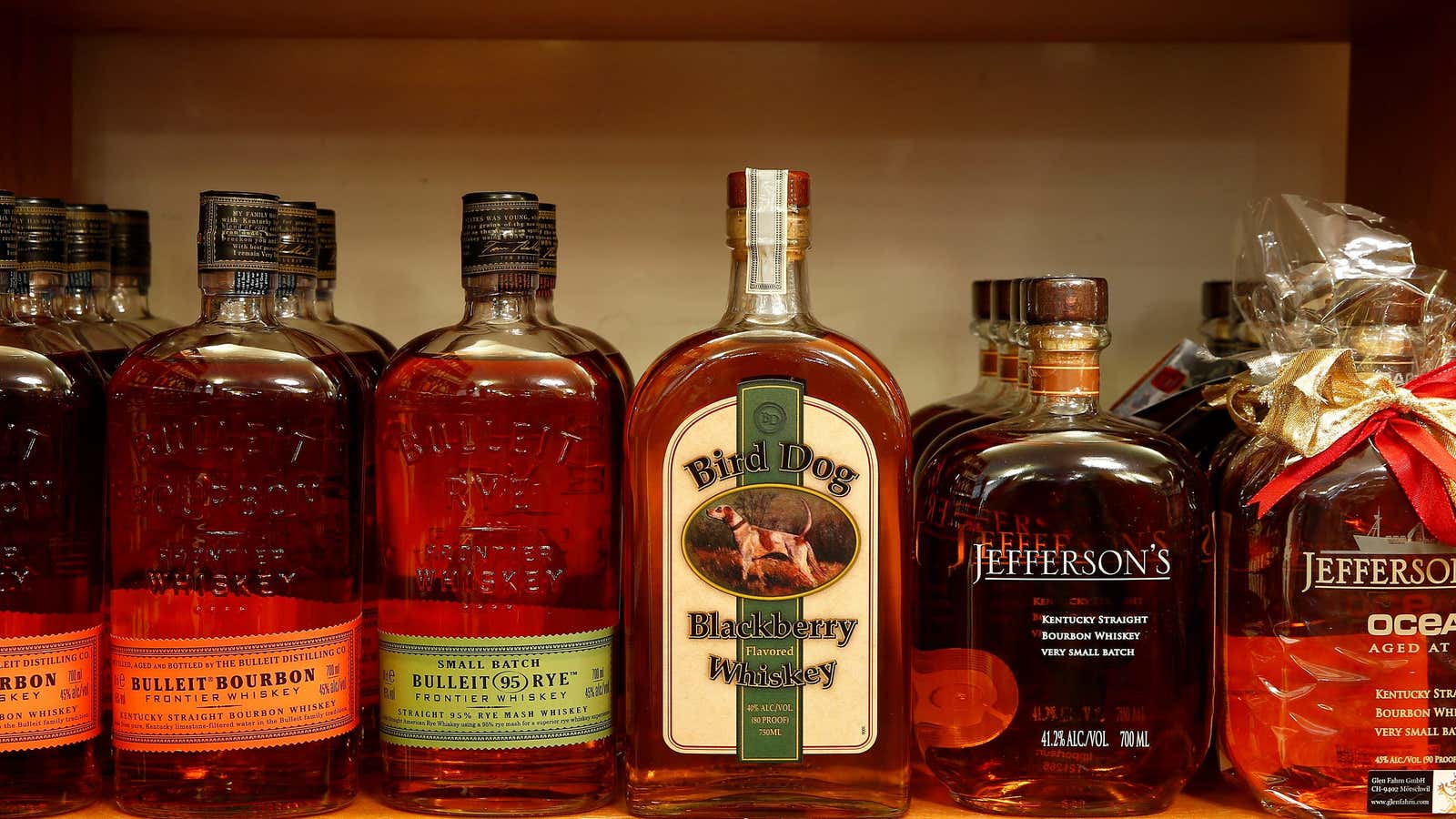The Coalition for Future Mobility, which has been lobbying the US government to get self-driving cars on American roads faster, recently signed up four new members. For a group that mainly represents automakers, tech companies, and the ride-sharing industry, one of the new members stands out: the Wine & Spirits Wholesalers of America.
Jeff Solsby, a spokesman for the wholesalers organization, said the trade group joined the Coalition for Future Mobility because it’s concerned with impaired driving and looking for “innovative ways to improve roadway safety.” He noted that about 20,000 of the 74,000 employees at the wholesalers belonging to the group are drivers whose livelihoods depend on safe roads.
Those drivers might not see it the same way. For all the expectations that autonomous vehicles are likely to make roads safer, they’re also expected to put a lot of people out of work—starting with truck drivers.
There are 3.5 million truck drivers in the US. In late 2016, the Obama administration estimated (pdf) that at least 80%, if not all of them, could see their jobs disappear as a result of automation (pdf, p. 18). The ramifications would be profound not just for America’s truckers, but for the many industries that depend on their business: restaurants, gas stations, motels, rest stops, and entire towns built around thruway traffic. Truck stops and travel plazas along interstate highways alone support 2.2 million jobs and 97,000 businesses, according to the National Association of Truck Shop Owners.
Driverless trucks are expected to go mainstream before driverless cars because highway driving is a relatively simpler problem to solve than city navigating. That means truck drivers are more at risk in the near future than, say, taxi drivers. Those who transport adult beverages are no exception: When driverless trucking startup Otto tested a commercial shipment in a self-driving vehicle in October 2016, the cargo it chose was Budweiser.
The short-term driverless future wouldn’t entirely remove humans from the equation. Drivers would still help to pick up and load freight into vehicles—these are tasks that are harder to automate. But it would look almost nothing like the job that truck drivers know today.
